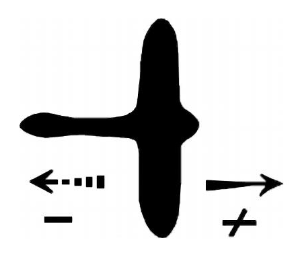6 - behavioural ecology
1/28
There's no tags or description
Looks like no tags are added yet.
Name | Mastery | Learn | Test | Matching | Spaced | Call with Kai |
|---|
No study sessions yet.
29 Terms
Define ethology
study of animal behaviour from an evolutionary perspective
What are proximate mechanisms
neuronal, hormonal, and anatomical mechanisms
Define ultimate causes
selection pressures that shaped the evolution of the behaviour
What are Tinbergen’s four questions
adaptation/function - how does the behaviour increase the animals fitness?
evolution - how did the behaviour evolve and how has selection changed over time?
causation - what are the triggers or stimuli that cause the behaviour to be performed?
ontogeny - how has the behaviour changed over the lifetime of the animal?
List 2 words to describe animal behaviour
unlearned and stereotypic (always the same)
What is stereotypic behaviour usually?
species specific
Describe the hawk/goose effect
baby birds show a reaction to a hawk like silhouette but no reaction to a goose like silhouette

Give an example of inherited behaviour in birds (2 points)
male songbirds have species specific songs used in territorial displays and courtship
white crowned sparrows must hear the song when they’re nestlings even though they don’t song it for a year
List 3 basic costs to actions
energetic
risk
opportunity
Describe energetic cost
the actions of the animals cost energy
Describe risk cost
increased chance of death, injury or infection as a result of the behaviour
Describe opportunity cost
potential benefits that are forfeited or lost from taking the action
What does optimal foraging predict? (2 points)
animals will make choices that maximise their energy intake
the more rapidly they can take in the fuel they need, the less opportunities are lost and the fewer risks are taken
List 5 things that food will vary on
how easy it is to find
how easy it is to proces
energetic value
nutritional value
palatability
Give an example of a foraging trade-off
crabs prefer mid-sized mussels as a prey item
large mussels are easy to open but contain little inside
large sized mussels contain alot of meat inside but take alot of time to open
Describe the landscape of fear
animals can carry a mental map of areas to avoid or limit their time there
What does the ideal free distribution model describe?
how animals should optimise where they forage to maximise their intake
Define ideal
animals have a perfect knowledge of the environment and the quality of patches
Define free
animals are free to move between patches
List 3 resource defenses that dung beetles undergo
roll dung away to bury
make a ball within the pat
tunnel into the soil beneath to make an egg chamber
List 3 advantages of living in groups
vigilance
dilution
group defence
Define vigilance
multiple animals are able to scout for predators
Define dilution
when attacked, there’s numerous possible targets so any individual is less at riskD
Define group defence
groups may be capable of fending off threats that individuals are not
Give an example of reciprocal altruism
a vampire bat who has eaten will feed another bat with the expectation of being fed back in the future
Define an honest signal
things that can’t be cheated (horn size)
Define an honest signal
something that misinterprets your condition or status
Define batesian mimicry
undangerous species looking like dangerous species
Define Mullerian mimicry
dangerous species looking like other dangerous species